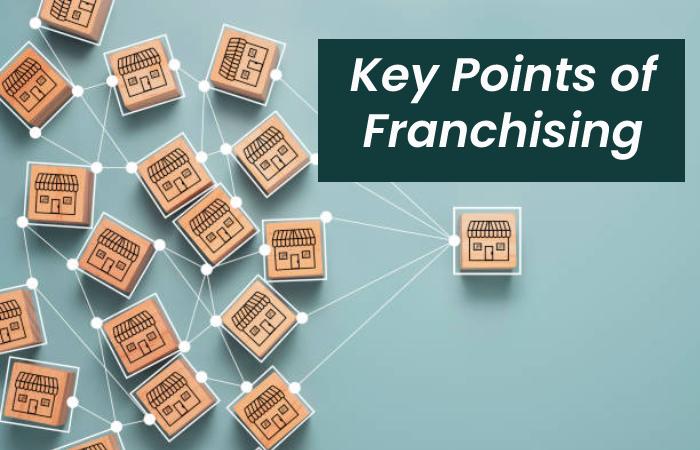Share This Article
About
A franchise (or franchising) is a strategy for disseminating products or services, including a franchisor, which lays out the brand’s trademark or business trademark and a business framework, and a franchisee, who pays an eminence and frequently an underlying charge for the option to carry on with work under the franchisor’s name and framework. The agreement restricting the two gatherings is the “franchise”; however, that term usually alludes to the genuine business that the franchisee works.
Key Points of Franchising

- Making and disseminating the brand and franchise framework is most frequently alluded to as franchising.
- There are two distinct kinds of franchising connections. First, business Configuration Franchising is the sort generally recognizable.
- In a business design franchise, the franchisor gives the franchisee its trademark, products, and services, yet a whole framework for working the business.
- For the most part, the franchisee gets site choice and improvement support, working manuals, preparation, brand norms, quality control, a showcasing procedure, and business warning help from the franchisor.
- While less related to franchising, customary or item appropriation franchising is more extensive in absolute deals than business design franchising.
- Examples of customary or product assumption franchising can be surveyed packaging, fuel, auto, and other assembling industries.
- Examples of Franchising in India
- McDonald’s
- Dominos
- KFC
- Pizza Hut
- Subway
- Dunkin’ Donuts
- Taco Bell
- Baskin Robbins
- Burger King
Functioning of Franchising
- Under a franchise, the two parties, by and large, go into a Franchise Agreement. This agreement permits the franchise to utilize the franchisor’s brand name and sell its products or services. Consequently, the franchisee pays a charge to the franchisor.
- The franchisee may sell these products and services by working as a part of the parent organization. It might utilize franchising rights by selling these products under its business adventure.
- The franchisor may allow franchising rights to a few people or firms. If only one individual gets these rights, he becomes the selective dealer of the franchisor’s products in a particular market or topographical breaking point.
- Consequently, the franchisor supplies its products, services, innovative ability, brand name, and proprietary advantages to the franchise. It even gives preparation and helps with some instances.
Advantages and Disadvantages of Franchising
Advantages
Franchisors:
- Firstly, franchising is an excellent method for growing a business without causing extra costs on extension. It is because the franchise bears all expenses of selling.
- This further likewise assists in building a brand with naming, expanding generosity, and arriving at additional customers.
Franchisees:
- A franchise can utilize franchising to begin a business on the franchisor’s pre-laid out brand name. Thus, the franchise can foresee his success and lessen the dangers of disappointment.
- Besides, the franchise likewise doesn’t have to burn money on preparing and helping because the franchisor gives this.
- Another advantage is that occasionally a franchisee may get selective rights to sell the franchisor’s products inside an area.
- Franchisees will get to know business strategies and trade mysteries of brands.
Disadvantages
Franchisors:
- The most fundamental disadvantage is that the franchise doesn’t have direct command over selling its products. Thus, its generosity can endure if the franchisor doesn’t follow quality guidelines.
- Moreover, the franchisee may try and release the franchisor’s privileged insights to rivals. Franchising likewise includes ongoing expenses of giving upkeep, help, and preparing for the franchisor.
Franchisees:
- No franchise, most importantly, has unlimited authority over its business. So generally need to stick to the arrangements and states of the franchisor.
- Another disadvantage is that he generally needs to pay an eminence to the franchisor on a standard premise. Now and again, he might try and need to impart his profits to the franchisor.
There are Three Main Types of Franchises.
- Most franchises fall under the business presentation type, where the franchisor certificates a business format, functioning system, and trademark rights to its franchisees.
- The second type of franchise is product circulation, which is more of a supplier-dealer setup. The franchisor allowances the franchisee permission to sell or allocate a product via their logo, trademarks, and occupation name. Still, it does not offer an operating structure to run the business.
- The third in manufacturing, where the franchisor allows the franchisee to manufacture their products (e.g., dress) and sell them below its trademarks.
Conclusion
Hence, a continuing relationship in which a franchisor makes a licensed source of pride available to the franchisee to do business and offers support in organizing, training, merchandising, marketing, and handling in return for monetary deliberation. Franchising is a business method by which the proprietor (franchisor) of a product, service, or technique obtains distribution through allied dealers (franchisees).
Also Read – Mass Marketing – About, Examples, Pros, Cons and More



